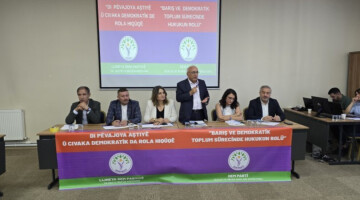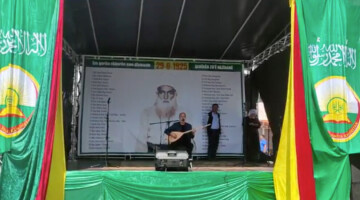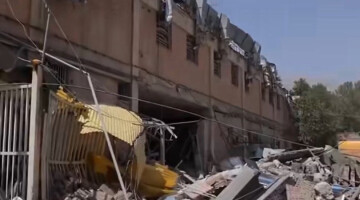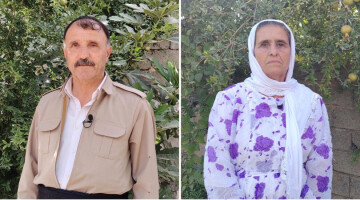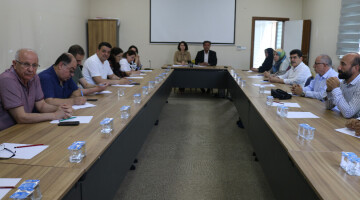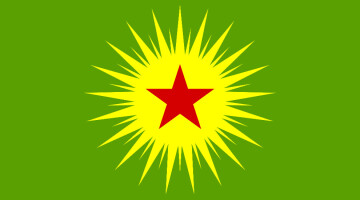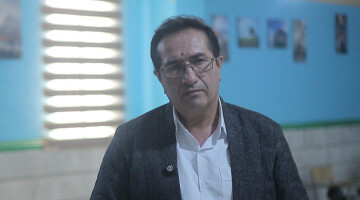Hawar was about to receive a visit from some friends he had not seen for a long time. He and his companions were on their way to an assignment and thus wanted to take a short break. Ten minutes before their arrival the visit was announced over the radio. Hawar lost no time and filled the soot-blackened teapot with the clear mountain spring water, which has an incomparable taste. He gathered dry twigs from the surrounding area and lit a fire. In his opinion, guerrilla tea is indispensable. If you add homemade cheese and fresh bread, you have the best menu in the world in front of you.
Hawar regarded such a reception as a cooperative task. While the tea still had to brew, the guests came down the narrow path one after the other. The joy of the reunion was seen all over their faces. Everyone greeted each other warmly and asked each other about their well-being. Then they sat around the fire and talked. They had not seen each other for a long time. Someone asked Hawar how he had joined the guerrilla. And he began to tell:
"It was the year the war raged in Rojava. We were a small group of friends, Bahoz, Bêkes, Çalak and me. One day we were sitting together and Bahoz said he wanted to go to Rojava. We froze and looked at each other. What did he mean by that? We didn't know about the revolution in Rojava or the Kurdish liberation struggle. We also knew very little about PJAK, why it existed and what it was fighting for.
In such a situation Bahoz said that he wanted to go to Rojava. A few days later he disappeared. We looked for him and asked, then we learned that he had left. And then the other two also left and in the end I followed. After a while I found out that my friends had fallen one after the other. And in order to live a life worthy of their memory, I continue my struggle at full strength."
When his story was over, he reached for the pot and poured tea. He brought bread and cheese and everyone enjoyed the guerrilla meal. Then he reached for the Erbane and played something for his guests. There is probably nobody from Rojhilat [Eastern Kurdistan] who is not interested in music or any other art. Hawar had already learned to play Erbane in his family, now he played for the guerrillas and sang along. His voice echoed from the cliffs and was beautiful. His guests said goodbye and also Hawar set off with his weapon and the Erbane on his back to meet other companions.
RELATED NEWS:

